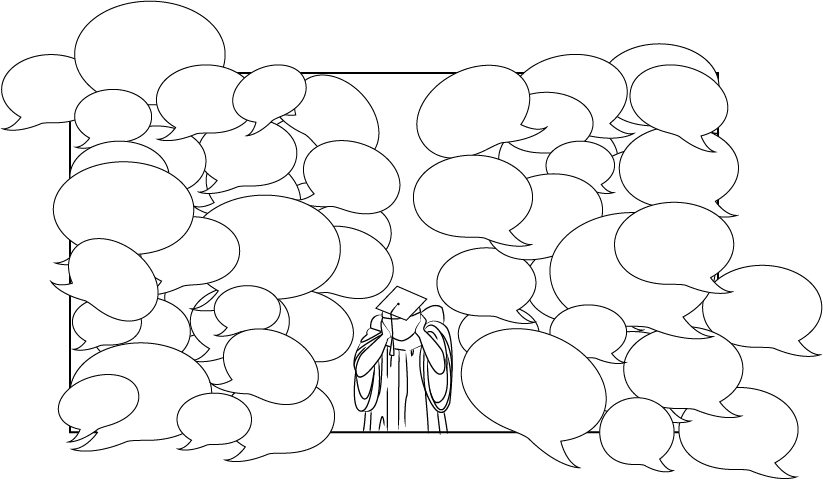Please, stop asking!
Post-graduation plans are stressful and more so when students receive constant reminders.
March 18, 2020
Graduation is palpable. You can see the stage, the diploma, but then there’s the moment you realize you have to decide what’s next. The notion of accomplishment becomes suffocated by the stress of leaving a comfortable space you have created during your time on campus(with the change to online classes it starts to become even more of a reality).
Then ensues the constant barrage of the question “so what are you going to do after graduation?” That question can induce added stress. For those who do not intend to continue with postgraduate education and those who face application rejections, it can cause serious self-doubt.
Finding a job out of college may not be difficult, but according to a report by CNBC, what job you do matters. The report is based on the findings of the Strada Institute for the Future of Work and Burning Glass Technologies and what they found was;
“. . .that first job, however arbitrary, can impact the rest of their career. Recent grads who end up in jobs that didn’t require a college degree are five times as likely to still be in such a position five years later, compared with those who put their diploma to use right away.
It can be hard to break out of that path, since employers may typecast applicants by their most recent experience.”
Even if an individual acquires a job after graduation, this may not be as positive as it appears. The pressure to seek any form of employment can lead to “typecasting”, meaning that employers see one as only skilled in that field. This is not a positive outlook for breaking into a rewarding dream career.
I turned to Hussein Rajput, Ph.D. LP, Director of Counseling Services at Hamline for insight into the above question.
“Being asked about post-graduation plans can certainly be very stressful for students, but the amount of added stress depends on a number of factors,” Rajput said. “Some variables that can make a difference are: (1) the person asking the question (and their motivation for asking) and (2) how prepared you feel to answer the question. Regarding the former, being asked by someone you trust and who has your best interests at heart is likely to be less stressful.”
If individuals ask because they care or want to help, it can alleviate the potential for additional stress. People often ask this question as a way of exhibiting a polite cultural norm under a thin veil of kindness that can add stress. As Rajput stated, their motive for asking can be the determining factor.
I asked Rajput for some advice on how to manage the stress of post-graduation.
“Probably the best piece of advice I can offer to new graduates is to use your support network,” he said. “Decades of research have shown that social support is hands-down the most powerful buffer against the harmful effects of stress. In addition to reaching out to friends and family, social support can include practical assistance with post-graduation career planning. This is where I would like to put in a plug for my colleagues at Hamline’s Career Development Center. The CDC is a great resource that is available to students throughout their years at Hamline as well as to alumni after graduation.”
Hamline provides options (supported by our tuition) for students to seek help. Therefore to get the most out of your investment and for your health, consider a visit.
Another option Rajput stated, “In preparing for the inevitable questions about post-graduation plans, I suggest that graduating seniors come up with one or more ‘scripts’ for responding. Even if you’re not 100% sure of your plans, it can help reduce your stress level if you have a default answer that you can pull out as needed.”
Society is inclined to ask questions toward people that they care so little about out of habit. How often does someone ask how you are or do you ask without listening or caring about an answer without considering what this could do to an individual.
Unless you care or want to help, please stop asking.



